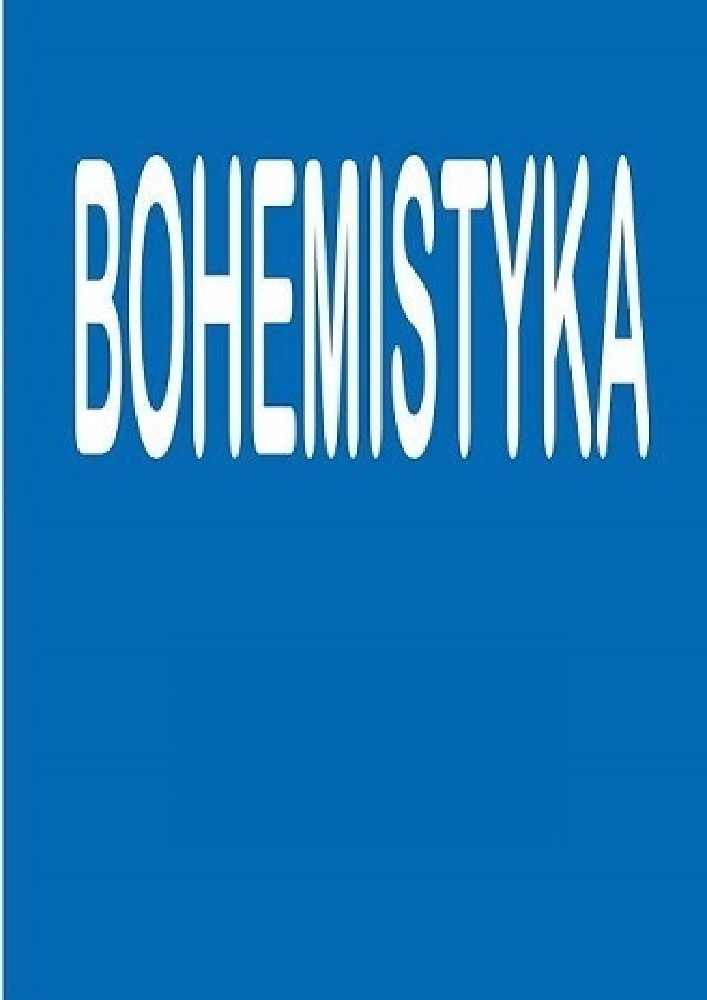Abstract
The subject of the analysis of this paper are phraseological units presenting the picture of a storm as a meteorological phenomenon in the Czech language. Phraseologies with the superior component bouřka and components blesk, hrom, vítr have been presented. Those components describe phenomenons accompanying the storm. Together they are the basic symptoms of the storm recorded in the language. The phraseological units discussed in the paper are used to express mainly negative evaluation, which comes from human experience and from contact with dangerous natural phenomena. They primarily describe the physical characteristics of a human being, his behavior, emotions and interpersonal relationships, while less often the elements of the surrounding world and they maintain the following attributes of storm phenomenons: ‚loud‘, ,turbulent‘, ,violent‘, ‚angry‘, ‚sudden‘, ‚very fast‘, ‚dangerous‘, ‚destructive‘.
References
Banzhaf H., Živly jako obraz člověka, Bratislava 2001.
Bittnerová D., Schindler E., 1997, Česká přísloví. Soudobý stav konce 20. století, Karolinum Praha.
Brückner A., 1985, Mitologia słowiańska i polska, Wstęp i opracowanie Stanisław Urbańczyk, Państwowe Wydawnictwo Naukowe, Warszawa.
Chlebda W., 2005, Szkice o skrzydlatych słowach. Interpretacje lingwistyczne, Wydawnictwo Uniwersytetu Opolskiego, Opole.
Chlebda W., Tarsa J., 1994, Pytania o skrzydlate słowa, Zeszyty Naukowe Wyższej Szkoły Pedagogicznej w Opolu, Filologia Rosyjska 32, Opole, s. 39-48.
Gieysztor A., 2006, Mitologia Słowian, Warszawa.
Kowalski P., 2007, Kultura magiczna. Omen, przesąd, znaczenie, Warszawa: Wydawnictwo Naukowe PWN.
Łuczyński M., 2011, Kognitywna definicja Peruna: Etnolingwistyczna próba rekonstrukcji fragmentu słowiańskiego tradycyjnego mitologicznego obrazu świata, „Studia Mythologica Slavica” XIV, s. 219-230.
Orłoś T.Z., 1997, Skrzydlate słowa pochodzenia biblijengo w języku czeskim i polskim, [w:] Problemy frazeologii europejskiej II, red. A.M. Lewicki, W. Chlebda, s. 123-127.
Ouředník P., 1994, Aniž jest co nového pod sluncem, Praha.
Pietrak-Meiser H., 1993, Słownik frazeologiczny czesko-polski, Lublin.
Pietryga A., 2003, Opozycja homo – animal a manicheizm, [w:] Opozycja homo – animal w języku i kuturze, Język a kultura, tom 15, s. 27–32.
Rejzek J., 2001, Český etymologický slovník, Praha.
Vademecum. Niebezpieczne zjawiska meteorologiczne: geneza, skutki, częstość występowania, Instytut Meteorologii i Gospodarki Wodnej, Państwowy Instytut Badawczy, Warszawa 2013.
License
Copyright (c) 2019 Grażyna Balowska

This work is licensed under a Creative Commons Attribution-NonCommercial-NoDerivatives 4.0 International License.




